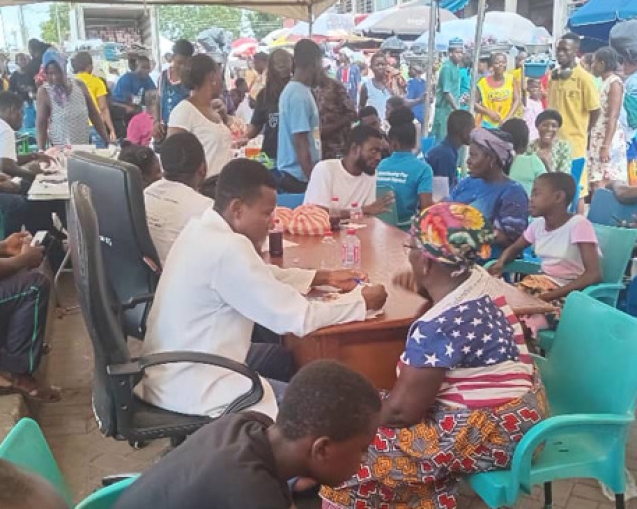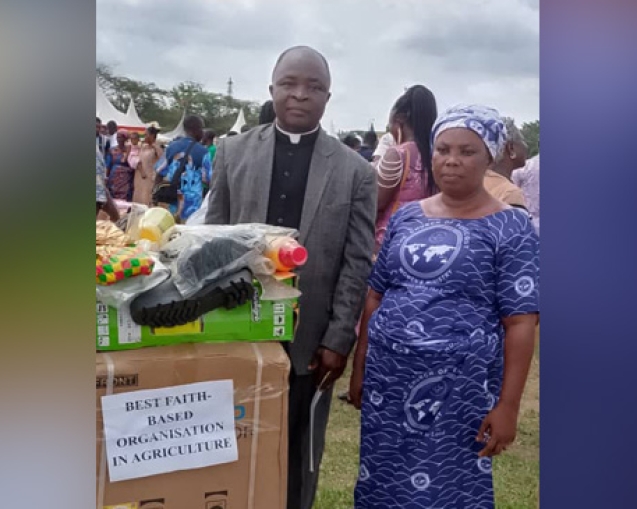In the dynamic world of the 21st century, The Church of Pentecost (COP) finds itself at the crossroads of tradition and transformation. With the rapid advancements in technology, social media, and the ever-changing global landscape, the church must adapt to continue fulfilling its mission effectively. We live in a world defined by VUCA—Volatility, Uncertainty, Complexity, and Ambiguity—a context that calls for creative, agile, and strategic leadership.
As The Church of Pentecost continues to grow both in Ghana and globally, it is essential for us to embrace change while remaining faithful to the core of the Gospel. This article explores how embracing the Marlot Process in a VUCA world can help the church navigate these challenges and emerge stronger, more connected, and more impactful.
Understanding VUCA: A New World, A New Strategy
The term VUCA was originally coined by the military to describe the unpredictable and rapidly changing world after the Cold War. However, it is just as relevant to us today as it pertains to the landscape the church faces.
1. Volatility:
In the context of ministry, volatility refers to the rapid changes that affect how we conduct church services, outreach, and community engagement. Just consider how quickly the pandemic forced us to adopt online services and virtual meetings. In a world where trends shift almost overnight, the COP must be ready to adjust quickly. Embracing digital platforms for evangelism and discipleship is not just a trend; it’s a necessity. A strong online presence—through Facebook, YouTube, and Zoom—is vital to reaching the next generation and engaging those beyond the church’s physical location.
2. Uncertainty:
Uncertainty in ministry can be seen in the unpredictability of society and culture. The church’s traditional ways of outreach, discipleship, and leadership are being challenged by new norms and ideologies. In the face of uncertainty, the Spirit of God remains our anchor, but our methods must evolve. The COP has always thrived by staying attuned to the leading of the Holy Spirit, but now it must also stay attuned to cultural shifts to ensure we remain relevant and impactful.
3. Complexity:
The complexity of modern ministry is evident in the numerous factors influencing the church today. From cultural diversity to technological advancements and the rise of secularism, ministers face complex challenges. The COP, with its global reach, must be able to manage these complexities while maintaining unity in doctrine and practice. Effective leadership training and strategic planning are more essential than ever in equipping pastors to address the complex needs of their congregations.
4. Ambiguity:
Finally, ambiguity refers to the lack of clear, easily defined solutions to the challenges the church faces. When we think about ministry in this VUCA world, there is no clear roadmap for success. As pastors, we must be willing to learn, adapt, and make decisions in the midst of uncertainty. The ability to embrace innovation without compromising biblical truths is crucial for the future of the COP.
The Marlot Process: A Framework for Ministry Transformation
While VUCA presents challenges, it also opens up opportunities for the church to grow and expand in new ways. This is where the Marlot Process comes in—an approach that calls for flexibility, adaptability, and ongoing transformation. The Marlot Process is about embracing change, assessing its impact, and recalibrating ministry strategies accordingly. It encourages church leaders to make intentional shifts to meet the needs of the present moment while staying rooted in their calling and mission.
For The Church of Pentecost, embracing the Marlot Process means moving beyond the status quo and intentionally seeking new ways to reach the lost, disciple believers, and engage communities. It requires innovative leadership, a commitment to growth, and a willingness to pivot when necessary. Let’s explore some nuggets that the church can learn from this process:
1. Embrace Digital Transformation: The Church Must Be Online
The digital age offers incredible opportunities for outreach and discipleship. The Marlot Process encourages us to be intentional about how we engage with the world, especially through new media. For the COP, this means embracing platforms like social media, online streaming, and podcasts to reach people beyond the physical walls of the church. The church’s youth ministry, for example, could harness platforms like Instagram and TikTok to share biblical messages in creative ways. The more the church embraces digital tools, the more we can break down geographical and cultural barriers, reaching new believers across the globe.
2. Adapt Leadership Models: Raising Agile, Spirit-Led Leaders
The Church of Pentecost has long been known for its strong leadership structure. However, as the church continues to grow globally, it must adapt its leadership models to meet the diverse needs of different cultures and societies. Leadership training must include digital literacy, cross-cultural communication, and strategic thinking. Pastors and leaders should be empowered to lead with flexibility, allowing them to respond to the ever-changing challenges they face while still staying true to the core values of Pentecostalism.
Additionally, the process encourages leadership that is spirit-led and able to pivot quickly when necessary. While it’s important to maintain biblical integrity, the ability to embrace change in ministry approaches will be key to ensuring relevance and effectiveness.
3. Strengthen Discipleship and Community Engagement: Focus on Relationships
As much as technology plays a significant role in modern ministry, the heart of ministry remains relationships. The Marlot Process teaches us to use digital tools to enhance, not replace, in-person interactions. Discipleship in the 21st century must go beyond just teaching; it must include authentic relationships. The COP should continue to focus on building intentional communities through small groups, prayer meetings, and fellowships, whether in-person or online. These gatherings should be designed to build spiritual growth, strengthen accountability, and foster a sense of belonging.
4. Foster a Culture of Innovation: Leaders Must Lead by Example
For The Church of Pentecost to thrive in a VUCA world, it must cultivate a culture of innovation where leaders model creativity and out-of-the-box thinking. The Marlot Process calls us to embrace new ideas and test new methods for ministry. From how we conduct worship services to how we train leaders, the church must be open to exploring new ways of doing things. This could include online training platforms for leaders or interactive Bible study tools for members. Creativity is not an option; it’s a necessity.
Conclusion
As The Church of Pentecost steps into the future, embracing the Marlot Process within a VUCA context will be essential to ensuring continued growth, unity, and impact. The challenges of volatility, uncertainty, complexity, and ambiguity are real, but they do not define us. With a Spirit-led, innovative approach, the church can adapt to the needs of the world while remaining grounded in its Pentecostal heritage.
As we move forward, let us embrace new opportunities with faith, build upon the old truths with wisdom, and stay rooted in the Gospel while boldly stepping into the future. The church is not just called to survive in a changing world but to thrive and transform it, one soul at a time.
Let us adapt, innovate, and grow, for the best is yet to come!
Written by Pastor Isaac Annor (Resident Minister, PIWC Downtown-Ofaakor)


















